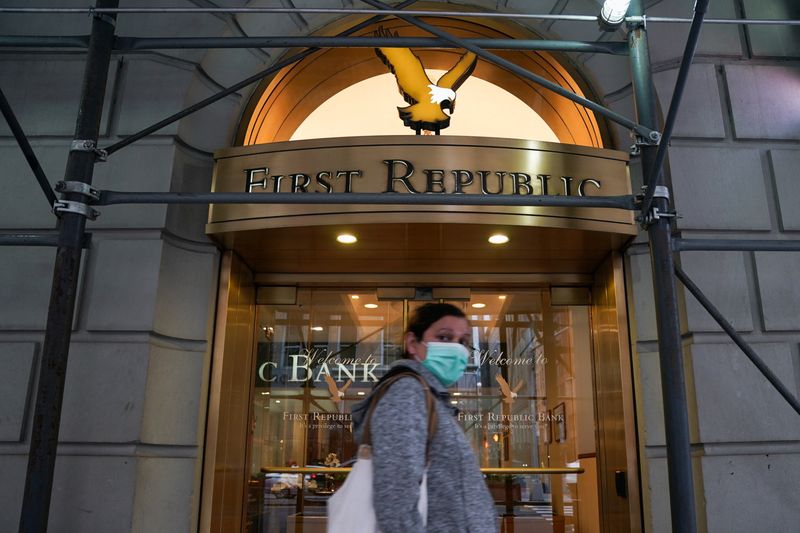Asian bank stocks fall across the board as U.S. rout spills over
2023.05.03 01:09

© Reuters
Investing.com — Major Asian bank stocks fell on Wednesday, tracking declines in their U.S. peers after the collapse of First Republic Bank sparked renewed concerns over a U.S. banking crisis.
While First Republic (NYSE:) was taken over by JPMorgan Chase & Co (NYSE:) in an emergency deal, markets dumped U.S. bank stocks on concerns over solvency issues in the rest of the sector. Regional banks bore the heaviest losses.
The selling spilled over into the Asian session, as markets feared any contagion from a potential U.S. banking collapse.
Australia’s big four banks were among the worst performers for the day, with Commonwealth Bank of Australia (ASX:), Westpac Banking Corp (ASX:), ANZ Group (ASX:), and National Australia Bank (ASX:) falling over 2% each.
Hong Kong-listed shares of HSBC (HK:) and Standard Chartered (HK:) lost 0.9% and 2.4%, respectively, while Singapore’s Oversea-Chinese Banking Corp (SGX:) and DBS Group (SGX:) – the biggest banks in Southeast Asia – lost 0.9% and 2.2%, respectively. Losses in the Singaporean banks were somewhat eased by stronger-than-expected quarterly results released earlier this week, which showed that their retail businesses were still robust.
KB Financial Group (KS:) and Shinhan Financial Group (KS:) – South Korea’s largest banks by assets – fell 2.1% and 1.5%, respectively.
Losses were largely skewed towards large Asian bank stocks with potential exposure to U.S. markets. Retail-oriented players, such as India’s HDFC Bank Ltd (NS:) and ICICI Bank Ltd (NS:) saw relatively lower losses for the day.
First Republic’s collapse comes after the failure of two other regional banks earlier in March. But First Republic is by far the largest U.S. banking failure since 2008, and the second-largest U.S. bank to fold.
Rising interest rates were the key reason behind the latest banking collapse, as lenders logged huge losses on their security portfolios as interest rates rose. Regional lenders were also hit with a wave of withdrawals since March, as depositors pulled out their holdings in fear of a collapse and in search of better yields.
Markets were also on edge before the conclusion of a later in the day, where the central bank is widely expected to hike rates by 25 basis points. Rising interest rates have also dried up credit activity in the U.S., further pressuring banks.








